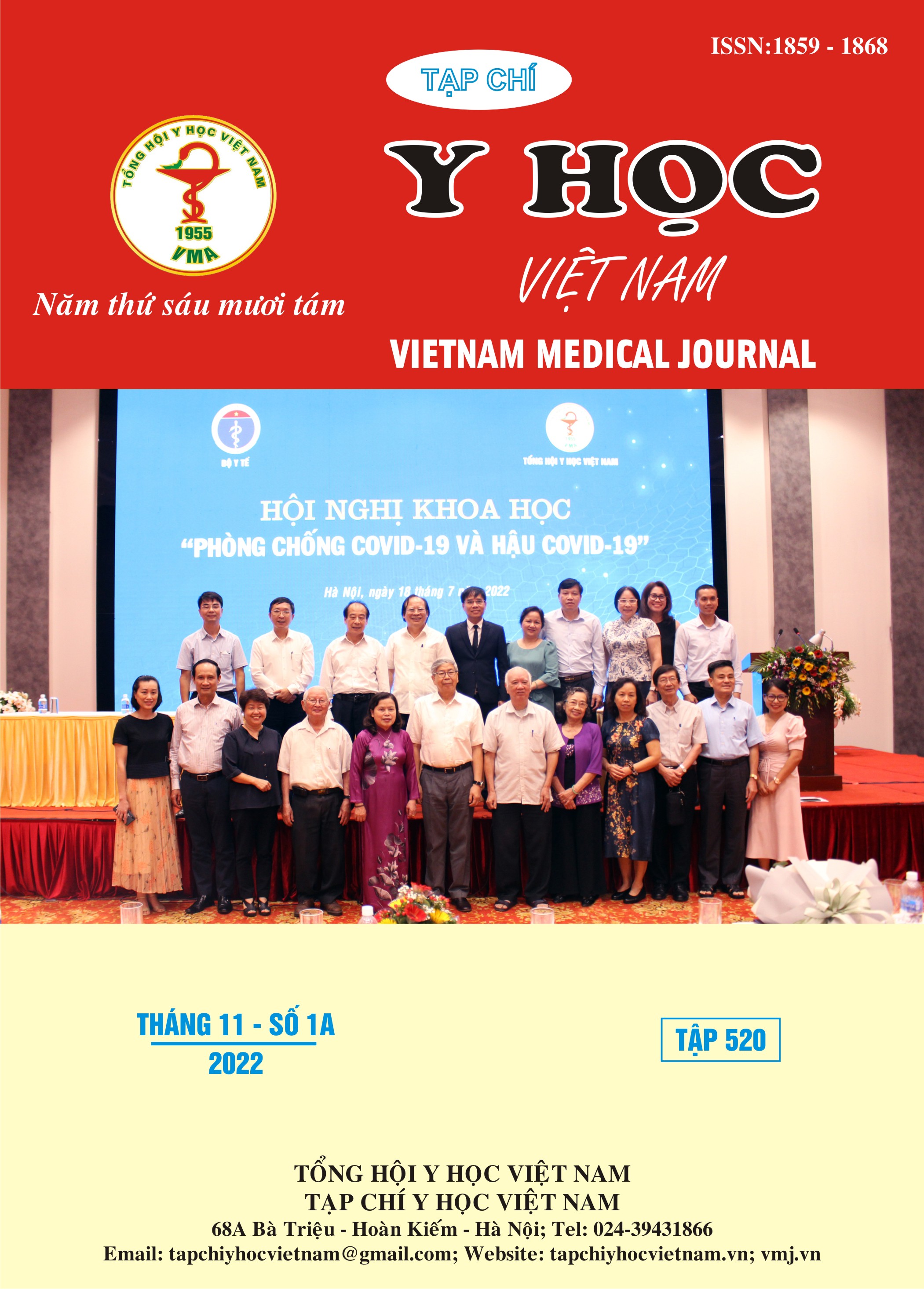NURSES’ COMPETENCIES IN RESPONSE TO COVID-19 PANDEMIC AT HOSPITALS IN THE NORTH VIETNAM IN 2021
Main Article Content
Abstract
Objectives: to describe knowledge, attitude and practice of nurses at hospitals in the Northern region of Vietnam in response to the COVID-19 pandemic. Methodology: a cross-sectional descriptive study was conducted on 1347 nurses at 10 hospitals at different levels in nothern region of Vietnam in 2021. The survey used convenient sampling method and self-administered questionnaires to collect data. Results: 79% of nurses participating in the study attained adequate knowledge of prevention and care of Covid 19 patients. Knowledge with low correct answer rate included: knowledge about SARS-COV-2 virus (21,3%); maximal oxygen flow administered via nasal tube (45,5%); procedures that generate aerosol (37%). 93,3% nurses had positive attitude towards Covid 19 prevention and control. Most of the attitude scores were above 4 (based on 5 degree Likert scale). There were 2 items with an average score less than 4 including: nurses thought that the current nursing staff was enough to take care of Covid-19 patients and nurses thought that their loved ones were safe with an average score of 3,76 and 3,97 points, respectively. Only 35,2% of nurses achieved satisfactory level of practice related to care of Covid 19 patients, of which the lowest rate of correct practice was the number of times of hand hygiene in the process of wearing personal protective equipment (12,3%), and reasonable nursing interventions when a patient had acidosis or respiratory failure accounted for 16,3% and 26,7% respectively. Conclusion: Nurses have good attitude and knowledge about Covid 19 pandemic response, but satisfactory practice when taking care is not good. Therefore, it is necessary to strengthen the training and supervision of nurses practice in caring for Covid-19 patients, especially in using personal protective equipment and care of Covid-19 patients having respiratory failure.
Article Details
Keywords
Nurses, COVID-19, Knowledge, attitude and practice
References
2. Giao Huynh et al (2020), "Knowledge and attitude toward COVID-19 among healthcare workers at District 2 Hospital, Ho Chi Minh City", Asian Pacific Journal of Tropical Medicine, 13(6), pg. 260-265.
3. Choi KR, Skrine Jeffers K and Cynthia Logsdon M (2020), "Nursing and the novel coronavirus: Risks and responsibilities in a global outbreak", J Adv Nurs, 76(7), pg. 1486-1487.
4. Fawaz M, Anshasi H and Samaha A (2020), "Nurses at the Front Line of COVID-19: Roles, Responsibilities, Risks, and Rights", Am J Trop Med Hyg. 103(4), pg. 1341-1342.
5. WHO (2020), Coronavirus disease (COVID-19) pandemic, Geneva, Switzerland, access date 2/6/2022, at the website https://www.who.int/ emergencies/diseases/novel-coronavirus-2019.
6. Xinjuan Wu and et al (2020), "Containing covid-19: crucial role of nurses", Thebmjopinion.
7. Wen X et al (2020), "Study on the Knowledge, Attitude, and Practice (KAP) of Nursing Staff and Influencing Factors on COVID-19", Front Public Health. 8, pg. 560606.
8. Bao-Liang Zhong et al (2020), "Knowledge, attitudes, and practices towards COVID-19 among Chinese residents during the rapid rise period of the COVID-19 outbreak: a quick online cross-sectional survey", International journal of biological sciences. 16(10), pg. 1745–1752.


